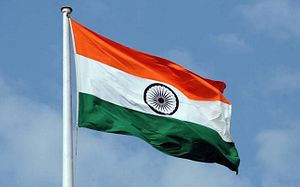It’s the kind of story that’s played on a loop in Bollywood: boy and girl fall in love, realize the different religious communities they hail from, and face protests, but eventually love conquers all. Except, last week, a young man was killed by the relatives of the girl he was in a relationship with, owing to their different religious backgrounds. The murder of 23-year-old photographer Ankit Saxena reveals India’s dirty underbelly of religious and caste intolerance, especially when matters of love and free will are concerned.
On the evening of February 1, Saxena was supposed to meet his girlfriend Shehzadi, with whom he had been in a relationship for three years. They were supposed to discuss the prospects of their future together; not a simple exercise given that Shehzadi hails from a Muslim family. Saxena is Hindu. The two were neighbors until few years ago, but nevertheless the love between them was alive.
That day, Shehzadi had a fight with her parents because of her relationship with Saxena, and left home declaring that she wouldn’t come back. She then called up Saxena and asked him to meet her. However, her father and uncle also arrived at the location, and following an argument about their relationship, they attacked Saxena with a knife and beat him to death. The police have arrested her mother, father, and uncle, and are looking for her brother, who is a minor. They have also recovered an eight-inch knife.
An incident like this, which reeks of the intolerance of Indians, brings to fore the trigger-happy attitude that has led to several similar incidents around the country. But it also squarely puts the focus on religious intolerance. Interreligious relationships have long been been tainted in India, and in recent years, the phenomenon of so-called love jihad – Muslim men feigning love to women belonging to non-Muslim communities to force their conversion to Islam – has become the conspiracy of choice for the far-right Hindu nationalist groups who fuel hate-mongering during election seasons.
A touching tribute to Saxena by his friends reiterates the absurdity of his murder, but this isn’t the first time the wrath of elders have come crashing down to silence the desires of the youth. Khap Panchayats, or caste-specific juries comprising elders in a village, have been notorious for their kangaroo courts, wherein “justice” is doled out in the most severe forms – including honor killings – to those who step out of line. Most of those have been young lovers who have, according to these Panchayats, committed a grave mistake of choosing a partner from a different caste.
In 2007, the news of Rizwanur Rahman’s death in Kolkata woke up the nation to the ruthlessness induced by a cocktail mix of patriarchy, power, and politics. Rahman, 30, had married 23-year-old Priyanka Todi, the daughter of an industrialist, discreetly and they eventually made their matrimony public. Todi was then forced to return to her parents’ home after the police threatened to arrest Rahman for abducting her. Two weeks later, Rahman was found dead near a railway line, his head mangled.
The incident brought to light the connivance of the Todi family with the upper echelons of the police force and politicians, with the goal of preventing the couple from being together, on the grounds that Rahman was a Muslim and hailed from a relatively humble background. Shockingly, riots followed across the cosmopolitan city, with police vehicles being set on fire, leaving several policemen and youth injured.
The Central Bureau of Investigation charged Todi’s industrialist father, her uncles, three senior police officers, and another man with abetting Rahman’s suicide, but Todi’s father challenged the charges in court. At the same time, another investigating officer was found dead.
Last year, 24-year-old Akhila (now Hadiya), who had converted to Islam and married a Muslim man, was held captive by her father, who feared her conversion was a case of “love jihad” meant to recruit her into the Islamic State. After Hadiya’s father approached the Kerala High Court alleging that his daughter’s religious conversion was forced, the court nullified Hadiya’s marriage to Shafin Jahan, suggested that Hadiya is still at a “vulnerable age,” and handed her to the “protective custody” of her parents. Jahan approached the Supreme Court seeking the release of his wife. Last month, the Supreme Court issued an order that championed Hadiya’s free will, stating that it is not within the courts’ jurisdiction to decide whether or not a grown woman should live with her parents.
While Hadiya and her husband Shafin Jahan may have seen the light of the day with a protracted legal battle, it seems like a long road of confused emotions are ahead for Shehzadi, whose boyfriend was killed by her own family, who are now behind bars. The patriarchal order that allows for such decisions to be made on behalf of young couples, which snowball into a vortex of violence, is telling of the ways in which personal choice continues to be silenced in India.
This is also the case when one’s sexuality is asserted in a way other than in heteronormative ways: there have been several instances of attacks on the queer. A report titled “The Economic Cost of Homophobia” stated that 28 percent of urban lesbians in India experienced abusive physical violence in their families. Would the Supreme Court’s review of its earlier stance on Section 377, which criminalizes adult consensual same-sex relationships by forbidding intercourse “against the order of nature,” bring about a semblance of dignity?
This appears unlikely, given that making a choice that is tangent to societal and community norms has proven fatal to the likes of Rahman and Saxena.

































